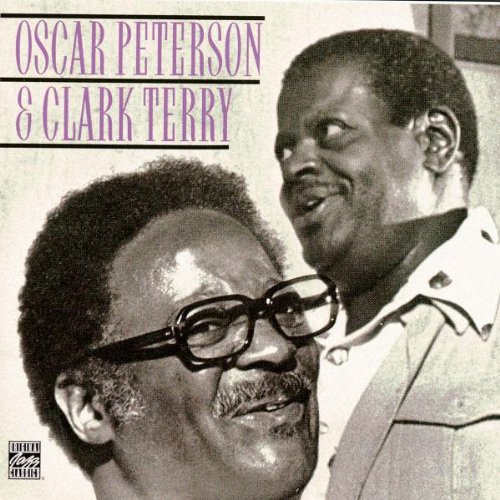When I found out about Clark Terry, I couldn’t believe it had taken me so long to find out about Clark Terry.
A legendary trumpeter and educator, Terry appeared on over 1000 recordings. He played with Basie and Ellington. He mentored Miles Davis. He was Quincy Jones’ first music teacher. And although most casual jazz listeners like me may not know his name, the biggest names in jazz recognize Clark Terry as a legend. In other words, he’s probably your favourite jazz musician’s favourite jazz musician.
I finally discovered his music through the documentary Keep On Keepin’ On. The film outlines how, when Terry was in his late 80s, diabetes was slowly stealing away his eyesight. It must have been hard for Terry’s loved ones to watch the world go dim around such a bright, vibrant person. And then, as his eyesight declined, he met Justin Kauflin, an up-and-coming jazz pianist who had been blind since age 11, and was trying to find his voice as a musician. Terry acted as a mentor for Kauflin, who in turn seemed to re-invigorate Terry.
It’s a heartwarming story. I was lucky enough to catch the film at a festival a couple of weeks ago, and the screening was followed by a performance from Kauflin. He spoke about Terry’s life, his influence, his overwhelmingly positive outlook despite his declining health. To add to the poignancy, Terry had died just days before the screening, and Kauflin was scheduled to attend the funeral the very next day.
As I left the theatre and wiped an obscene amount of tears from my face, I wondered how it was possible that this was the first I’d ever heard of Clark Terry. I think the biggest difference between Terry and better-known jazz heroes is that Terry spent much of his career as an educator. He used his incredible skill as a scaffold for others, rather than a grandstand for himself. He may not have left a legacy of number 1 hit records, but his effect on the thousands of students he helped over the years is immeasurably larger, and arguably more meaningful.
What makes this a beautiful song:
1. Terry’s smooth, whispering tone is a nice complement to Oscar Peterson’s lively, fluttering piano style.
2. The original version has lyrics (it’s been sung by everyone from Aretha Franklin to Lady Gaga) but this version does fine without them, and that in itself is a tribute to Terry’s playing.
3. When the trumpet drops out and gives Peterson a chance to take a solo, I can just imagine Clark Terry leaning back and smiling, the contended teacher, happy to give someone else the spotlight.
Recommended listening activity:
Sending a thank-you note to your favourite teacher.
